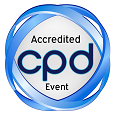
Hossam Ibrahim Eldesuky Ali Hassan
Zagazig University, Egypt
Title: Dexmedetomidine versus ketofol for moderate sedation in Endoscopic Retrograde Cholangiopancreatography (ERCP) comparative study
Biography
Biography: Hossam Ibrahim Eldesuky Ali Hassan
Abstract
Objectives: The study was conducted to compare 2 techniques of moderate sedation for patients undergoing ERCP, using either dexmedetomidine or ketofol as regards to hemodynamic, sedation, pain, respiratory effect, recovery time, patients’ and endoscopists’ satisfactions, and complications during and after the procedure. Patients & Methods: Fifty patients were randomly allocated in one of two groups; dexmedetomidine group D (n=25) received 1 lg/kg i.v. bolus over 10 min followed by 0.5 lg/kg/h or ketamine/propofol (ketofol) group KP (n=25) received 1 mg/kg i.v. bolus followed by 50 lg/kg/min. The level of sedation was adjusted to achieve a Ramsay sedation scale (RSS) score of 4 in both groups of patients. Mean arterial pressure (MAP), heart rate (HR), peripheral oxygen saturation (SPO2), and facial pain score (FPS) were compared. Time to achieve RSS, modified Aldrete’s score (MAS) of 9–10 and the related complications were compared between groups. Patients’ and endoscopists’ satisfactions were compared. Total amount of rescue sedation was recorded. Results: After loading dose HR and MAP were significantly lower in group D as compared with group KP (p<0.05). HR was significantly lower in group D during the recovery (p<0.05). No significant difference between both groups as regards to time to achieve RSS, MAS, FPS and total dose of rescue sedation. Personnel restraint was significantly lower in group KP (8% versus 20%) than in group D. Endoscopists’ satisfaction was significantly higher in group KP than D group (92% and 80%) respectively. Conclusion: Ketofol (1:1) provided better hemodynamic stability than dexmedetomidine and standard alternative to it in moderate sedation during ERCP.

